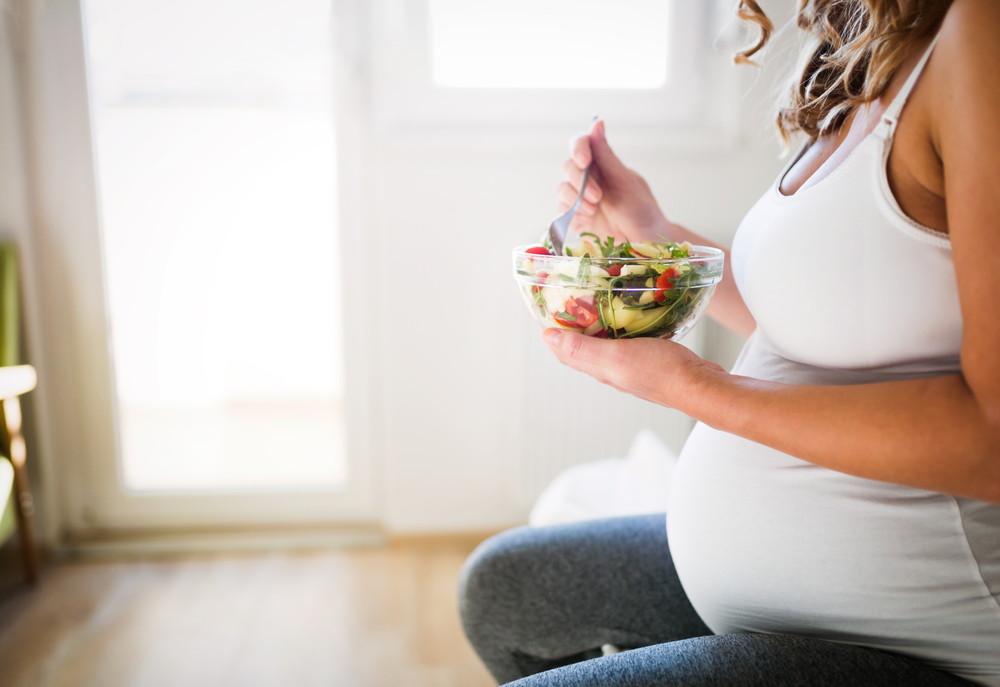Breastfeeding: Complete nutrition for the baby, medicine for the mother
A new mother cannot express in words the feeling of the child clinging to her mother's chest after a long wait of nine months. With that, the new mother's journey begins. A mother's first responsibility is to breastfeed her baby.
Because the newborn baby is completely dependent on mother's milk until he is 6 months old. Therefore, doctors say that new mothers should know everything related to breastfeeding.
Dr. Obstetrician and Gynecologist working at Vatsalya IVF Center. Upma Basnet says, 'From the day of birth to 6 months, all the nutrients a child needs are found in mother's milk. Therefore, breastfeeding is very important for children during this period.
Between 6 and 12 months, half of the nutrients a baby needs comes from breast milk and half from other solid foods.
Even after this, children from one year to two years of age should be breastfed because one-third of the nutrients they need are available from mother's milk.
Three stages of breastfeeding
Dr. According to Basnet, after giving birth, the mother produces milk in three stages: colostrum secretion, transitional milk and mature milk.
- Colostrum is secreted two to five days after birth. It contains many antibodies like cholesterol, nucleoside and immunoglobulin, which can protect the child from any infection.
- Transitional milk is released between the second and fifth day after birth until the second week. During this time, the mother feels full and hot breasts. The milk gradually turns blue or white in color.
- Mature milk starts coming from the second or third week. The amount of fat in this milk changes.
The difference between colostrum and mature milk is that colostrum milk is yellow in color compared to normal milk.
Mother's milk is 80 percent water while solid food is 12 percent. It also contains two percent carbohydrates and protein. She also says that it also contains all the necessary micronutrients in prescribed amounts, which help the child's digestion process.
Therefore, no food other than mother's milk is provided to the newborn for the first 6 months after birth.
"If you breastfeed properly when you are hungry, you don't have to give water to the baby," said Dr. Basnet says.
Breastfeeding for how long?
Gynecologist Dr. Isan Children's and Women's Hospital. According to Mala Shrestha, breastfeeding for two years from birth is very healthy for the child. Working women keep milk in the refrigerator and give it to their children when they are hungry.
But do not feed cold milk directly from the refrigerator. Wait until the milk reaches normal temperature. Shrestha says that the milk should be fed only when it is normal. "It is not wrong to store milk and feed it to children later, but in this process, there is a possibility that the nutrients in the milk will be reduced," she says, "Cold milk is also harmful for the health of the child."
Therefore, he suggests that mothers should prioritize their children over work until they reach the age of one year.
Why is breastfeeding important for babies?
Dr. According to Mala, mother's milk provides nutrients and antioxidants to the baby for six months.
"Mother's milk protects the child from long-term, short-term or any type of infection and problem," she says.
A strong bond between mother and child
During breastfeeding, there is a kind of tight bond between mother and child. This bond is very important for the development of children. Shrestha says.
During this period, the child feels safe with the mother. He says that this bond helps the child's physical and mental development to a great extent. But now most of the mothers are facing the problem of low milk production.
According to the Nepal Demographic and Health Survey-2022, only 56 percent of pregnant women were breastfeeding. That is, out of 100 people, only 56 mothers breastfeed their babies for 6 months after birth.
Some people are forced to resort to lactogen instead of taking their doo. With the introduction of some modernity, new mothers resort to formula milk and lactogen due to the mistaken understanding that formula milk is more nutritious and better than their own milk.
Such products fulfill the food needs of the child. But not as safe and powerful as mother's milk. Basnet says.
What to do if there is no milk?
Only 'formula milk' is made as an alternative to this. Formula milk is produced based on the nutrients found in mother's milk. Formula milk is prepared according to certain standards by combining the amount of protein, vitamins, minerals and fat in mother's milk.
It gives nourishment to the baby. Your own mother's milk does not contribute to the formation of antibodies. Although it is a good option if the milk does not come, if the milk continues to come, it is better to feed the mother's milk than such products. Basnet says.
When taking formula milk, it should be taken with high liquid protein. Mother's milk contains 70 percent liquid protein, which plays a role in the physical development of the baby and prevents constipation, she says.
Why is milk produced less?
Health conditions can also make a difference in breast milk production. If the mother is healthy, well-rested, calm and well-nourished, the milk provides all the nutrients. The production is also in the same proportion. But if the mother has problems such as stress, hormone imbalance, thyroid, low milk production, Dr. Obstetrics and Gynecology Specialist. Basnet says.
Stress causes hormonal imbalance, which affects milk production. Apart from this, low milk production of the mother can also be caused by the group of cells in the breast, hypothyroidism, underweight, she says, "Fat is necessary to increase the quality and quantity of mother's milk." Even if there is less fat, protein and liquid in the diet, less milk is produced.
Some women believe that according to the size of the breast, the milk is more or less. In other words, there is a widespread misconception that if the size of the breast is large, more milk will be produced and if the size is small, the milk will be less. Breast size has nothing to do with mother's milk production. Basnet says.
She says that breastfeeding is not only like elixir for the baby, but also works as a medicine because it is beneficial for the health of the mother.
What are the benefits?
- If the baby sucks the mother's milk immediately after birth, the placenta will come out quickly.
- Bleeding in childbirth is reduced.
- Breastfeeding helps the uterus return to normal.
- If he is suckled from his mother's milk immediately after birth, it helps him to get more milk from the breast.
- Sucking milk immediately and often reduces the problem of breast swelling.
- Breast milk can be fed anytime and anywhere.
- Intimacy between mother and child increases.
- It works as a contraceptive if there is no return of menstruation and effective full breastfeeding for the first 6 months after childbirth.
- The risk of ovarian cancer and breast cancer in the mother is reduced.
- Reduces the unnecessary weight of the mother.
How to breastfeed
- The mother should always breastfeed the baby while sitting in a comfortable position. While keeping the baby in your arms, you should feed it by placing one hand on the head so as to balance the body well.
- You should not breastfeed the baby while sleeping. It makes the child uncomfortable to eat.
- After breastfeeding, the baby should be placed on the shoulder and lightly touched on the back for some time.
What kind of food does the mother eat?
Obstetrics and gynecology expert Dr. should give preference to foods rich in protein and fat. Basnet says. Lactating women should take protein foods three times a day.
90% of protein can be obtained from plants and 10% from fish. A pregnant mother should eat different types of food every day (grains, legumes, green vegetables, vegetables and fruits, fish, meat). Pregnant women should not do hard work and should stay away from smoking and alcohol.
Anxiety in the breastfeeding mother
Dr. According to Basnet, some superstitions are rooted in some of them when they become mothers for the first time.
"Many people have the illusion that if the baby is fed milk, the breast will sag and the shape will look bad. Because of this concern, they are afraid of getting pregnant," she says. "It's not breastfeeding, but age and heredity that are responsible for loose breasts."
A mother needs proper sleep
If the child does not sleep at night, the mother can also cause sleep problems. Thapa says.
Good sleep is a basic need for mothers. If there is a problem related to sleep, it affects the mother both physically and mentally. It causes problems related to depression, Dr. Basnet says.
You can sleep and rest while the baby is sleeping or someone else is taking care of it. During this time, you may feel tired as you have to rest at home. To make good use of this time, one can focus on activities that are of interest to please the mind.







